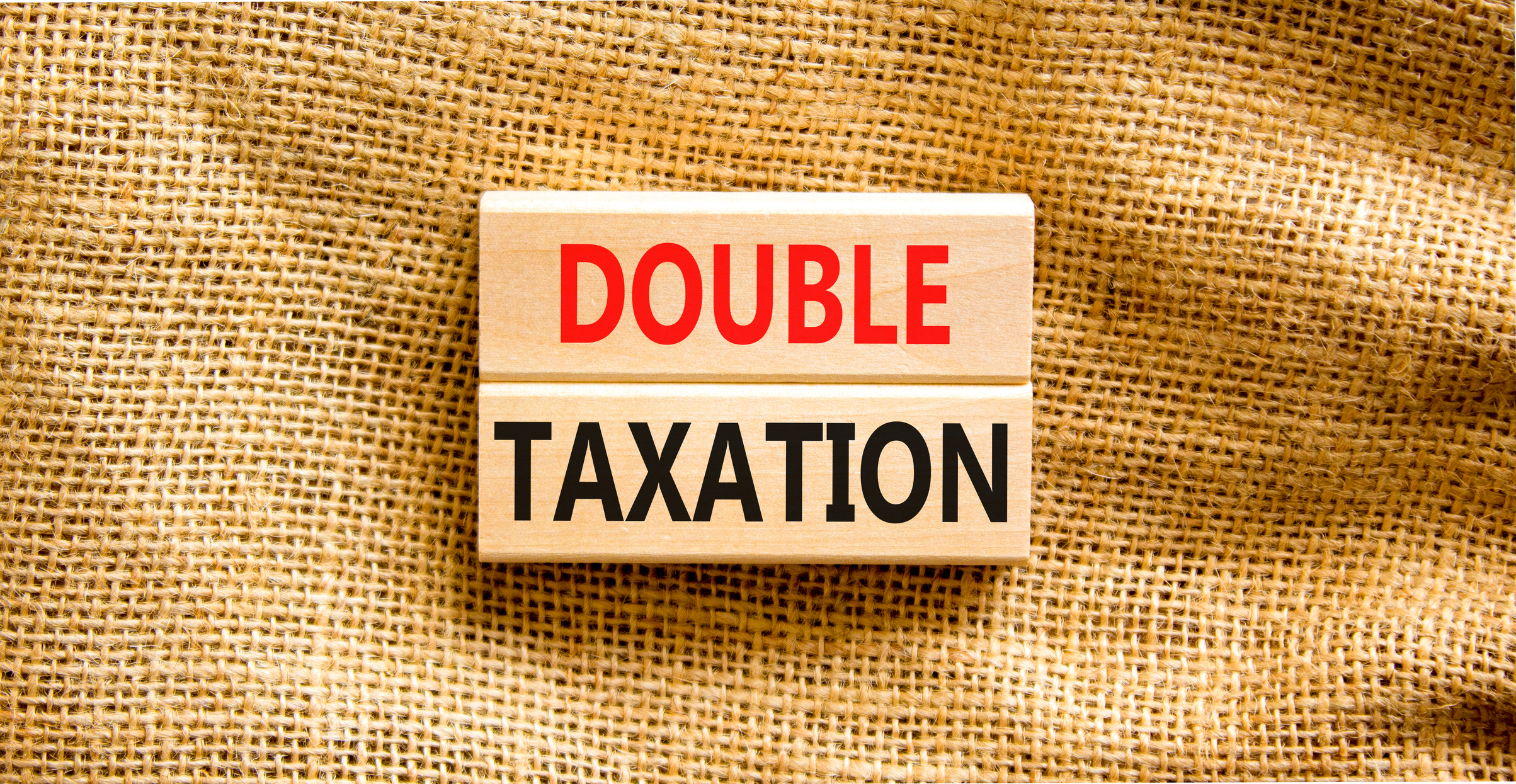Massachusetts Tax Guide
Explore Massachusetts' state tax rates for income, sales, property, retirement, and more. Learn how Massachusetts compares nationwide.


Profit and prosper with the best of Kiplinger's advice on investing, taxes, retirement, personal finance and much more. Delivered daily. Enter your email in the box and click Sign Me Up.
You are now subscribed
Your newsletter sign-up was successful
Want to add more newsletters?

Delivered daily
Kiplinger Today
Profit and prosper with the best of Kiplinger's advice on investing, taxes, retirement, personal finance and much more delivered daily. Smart money moves start here.

Sent five days a week
Kiplinger A Step Ahead
Get practical help to make better financial decisions in your everyday life, from spending to savings on top deals.

Delivered daily
Kiplinger Closing Bell
Get today's biggest financial and investing headlines delivered to your inbox every day the U.S. stock market is open.

Sent twice a week
Kiplinger Adviser Intel
Financial pros across the country share best practices and fresh tactics to preserve and grow your wealth.

Delivered weekly
Kiplinger Tax Tips
Trim your federal and state tax bills with practical tax-planning and tax-cutting strategies.

Sent twice a week
Kiplinger Retirement Tips
Your twice-a-week guide to planning and enjoying a financially secure and richly rewarding retirement

Sent bimonthly.
Kiplinger Adviser Angle
Insights for advisers, wealth managers and other financial professionals.

Sent twice a week
Kiplinger Investing Weekly
Your twice-a-week roundup of promising stocks, funds, companies and industries you should consider, ones you should avoid, and why.

Sent weekly for six weeks
Kiplinger Invest for Retirement
Your step-by-step six-part series on how to invest for retirement, from devising a successful strategy to exactly which investments to choose.
Navigating the complexities of state taxes can be daunting, but understanding Massachusetts' tax landscape is essential for residents and newcomers alike.
In this guide, we'll explore key components of The Bay State's tax system, from income and sales taxes to property taxes and retirement benefits.
Massachusetts tax: Overview
Massachusetts has a flat personal income tax rate of 5% on your federal adjusted gross income. However, if you're earning more than $1 million, there's an additional 4% tax—often called the "Millionaires Tax."
From just $107.88 $24.99 for Kiplinger Personal Finance
Become a smarter, better informed investor. Subscribe from just $107.88 $24.99, plus get up to 4 Special Issues

Sign up for Kiplinger’s Free Newsletters
Profit and prosper with the best of expert advice on investing, taxes, retirement, personal finance and more - straight to your e-mail.
Profit and prosper with the best of expert advice - straight to your e-mail.
When it comes to property taxes, the Bay State isn’t exactly the most affordable, and it also has an estate tax to think about. On the bright side, Massachusetts keeps its sales tax relatively low, which helps balance things out.
In the News: As Kiplinger reported, lawmakers compromised last year on a widespread Massachusetts tax relief package, which includes tax breaks for residents of all income levels. What some call the largest tax relief package in history would cost the Commonwealth $1 billion when the legislation is fully phased in.
Massachusetts Gov. Maura Healey says the tax relief would make Massachusetts “more affordable.”
For more information, see $1 Billion Massachusetts Tax Relief: What's Included?
[Data for this state tax guide was gathered from several sources including the U.S. Census Bureau, the Tax Foundation, the state’s government website, and the Sales Tax Handbook. Property taxes are cited as a rate percentage rather than the assessed value.]
Massachusetts income tax rate

Massachusetts has a graduated state individual income rate ranging from 5% to 9% of federal adjusted gross income. (Note: Massachusetts voters approved a constitutional amendment to add a 4% tax on taxable income over $1 million. That started in 2023.)
Massachusetts retirement taxes
- Social Security: Not taxable
- Pensions: Taxable (Government and public pension plans may be tax-exempt.)
- 401(k) and IRA Distribution: Taxable
- Railroad Retirement benefits are also exempt.
Massachusetts sales tax

Massachusetts has a 6.25% state-level sales tax. There are no local sales taxes.
- Groceries: Exempt
- Clothing: Exempt if sold for $175 or less
- Motor Vehicles: Taxable
- Prescription Drugs: Exempt
How much are property taxes in Massachusetts?

In Massachusetts, average property taxes are paid about 1.04% of assessed home value, according to the Tax Foundation.
Massachusetts Property Tax Breaks for Retirees
Massachusetts homeowners and renters who are 65 or older may qualify to claim a refundable "circuit breaker" tax credit on their state income taxes to offset real estate taxes or rent paid during the year on their principal home.
Massachusetts gas tax

- Gasoline: $0.24 per gallon
- Diesel: $0.24 per gallon
Massachusetts taxes on alcohol and tobacco
Massachusetts tobacco and marijuana taxes
Product | Tax Amount |
|---|---|
Cigarettes and cigars | $3.51 per pack of 20 |
Other tobacco products | 40% of the wholesale price |
Medical Marijuana | 0.00% |
Recreational Marijuana | 17% (cannabis sales tax of 6.25% and state excise tax of 10.75%) |
Source: The Sales Tax Handbook
Massachusetts alcohol taxes
Product | Tax Amount |
|---|---|
Beer | $0.11 per gallon |
Wine | $0.55 per gallon |
Liquor | $4.05 per gallon |
Alcohol sales are exempt from sales tax in Massachusetts.
Source: The Sales Tax Handbook
Massachusetts estate and inheritance taxes
- Estates valued at more than $2 million may be subject to a Massachusetts estate tax. Tax rates range from 0.8% to 16%.
- There is an unlimited marital deduction for property left to a surviving spouse and an unlimited charitable deduction for property left to a qualified charity.
Related Content
Profit and prosper with the best of Kiplinger's advice on investing, taxes, retirement, personal finance and much more. Delivered daily. Enter your email in the box and click Sign Me Up.

Kelley R. Taylor is the senior tax editor at Kiplinger.com, where she breaks down federal and state tax rules and news to help readers navigate their finances with confidence. A corporate attorney and business journalist with more than 20 years of experience, Kelley has helped taxpayers make sense of shifting U.S. tax law and policy from the Affordable Care Act (ACA) and the Tax Cuts and Jobs Act (TCJA), to SECURE 2.0, the Inflation Reduction Act, and most recently, the 2025 “Big, Beautiful Bill.” She has covered issues ranging from partnerships, carried interest, compensation and benefits, and tax‑exempt organizations to RMDs, capital gains taxes, and energy tax credits. Her award‑winning work has been featured in numerous national and specialty publications.
-
 Quiz: Do You Know How to Avoid the "Medigap Trap?"
Quiz: Do You Know How to Avoid the "Medigap Trap?"Quiz Test your basic knowledge of the "Medigap Trap" in our quick quiz.
-
 5 Top Tax-Efficient Mutual Funds for Smarter Investing
5 Top Tax-Efficient Mutual Funds for Smarter InvestingMutual funds are many things, but "tax-friendly" usually isn't one of them. These are the exceptions.
-
 AI Sparks Existential Crisis for Software Stocks
AI Sparks Existential Crisis for Software StocksThe Kiplinger Letter Fears that SaaS subscription software could be rendered obsolete by artificial intelligence make investors jittery.
-
 How to Open Your Kid's $1,000 Trump Account
How to Open Your Kid's $1,000 Trump AccountTax Breaks Filing income taxes in 2026? You won't want to miss Form 4547 to claim a $1,000 Trump Account for your child.
-
 In Arkansas and Illinois, Groceries Just Got Cheaper, But Not By Much
In Arkansas and Illinois, Groceries Just Got Cheaper, But Not By MuchFood Prices Arkansas and Illinois are the most recent states to repeal sales tax on groceries. Will it really help shoppers with their food bills?
-
 7 Bad Tax Habits to Kick Right Now
7 Bad Tax Habits to Kick Right NowTax Tips Ditch these seven common habits to sidestep IRS red flags for a smoother, faster 2026 income tax filing.
-
 New Plan Could End Surprise Taxes on Social Security 'Back Pay'
New Plan Could End Surprise Taxes on Social Security 'Back Pay'Social Security Taxes on Social Security benefits are stirring debate again, as recent changes could affect how some retirees file their returns this tax season.
-
 Living in One State, Working in Another: How to Avoid a Tax Season Headache
Living in One State, Working in Another: How to Avoid a Tax Season HeadacheState Tax Living and working in two states can take a heavy toll on your paycheck and give you a headache come tax time. Here's what to know.
-
 10 Cheapest Places to Live in Colorado
10 Cheapest Places to Live in ColoradoProperty Tax Looking for a cozy cabin near the slopes? These Colorado counties combine reasonable house prices with the state's lowest property tax bills.
-
 New Gambling Tax Rule Impacts Super Bowl 2026 Bets
New Gambling Tax Rule Impacts Super Bowl 2026 BetsTaxable Income When Super Bowl LX hype fades, some fans may be surprised to learn that sports betting tax rules have shifted.
-
 Should You Do Your Own Taxes This Year or Hire a Pro?
Should You Do Your Own Taxes This Year or Hire a Pro?Taxes Doing your own taxes isn’t easy, and hiring a tax pro isn’t cheap. Here’s a guide to help you figure out whether to tackle the job on your own or hire a professional.